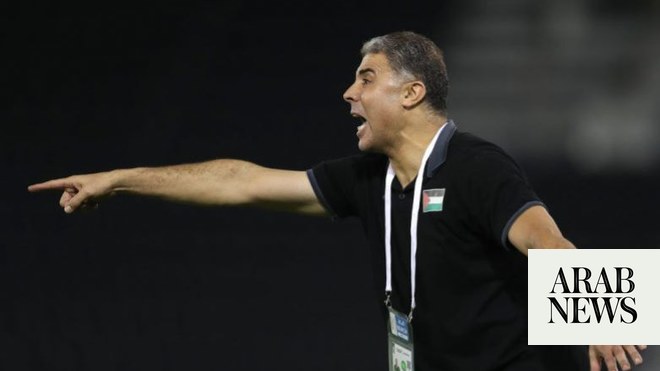
South Korea, Indonesia, Cambodia and then Thailand, for a training camp. The past 12 months read like a backpacker’s paradise but, for Jamie Day, those Asian countries equate to business, pit stops on his journey as the head coach of a cricket-mad nation: Bangladesh.
For the majority of the last year Day has been in Dhaka, one of the world’s densest cities, preparing his side for the 2022 World Cup qualifying campaign, which begins on Thursday against Laos – who are 184th in the Fifa rankings, four places above Bangladesh.
“You associate Bangladesh with cricket and, don’t get me wrong, it’s a big sport there but from what I have seen I would say football has the scope to be even bigger,” Day says. “They love football but they have never been successful at it. I went to the Twenty20 games out in Bangladesh and there were probably 20,000-30,000 people there and we get similar: 30,000-40,000 at our games.
“If you keep winning, like anything in sport, more people turn up and follow. I think football is probably more popular in Bangladesh than cricket but at the minute cricket is way ahead of football because it is more supported and gets more financial investment from sponsorship and things like that.”
After accepting the job last May, Day spent 14 weeks implementing a new training regime. One of the first tasks was to change his young squad’s diet: bread, curry and dal were ditched. “It’s been a fantastic experience,” says the 39-year-old, who started his playing career at Arsenal. “We had the Asian Games and now to be involved in a World Cup qualifier in which we potentially could get through to play Australia and Japan is something you dream of when you’re coaching in the lower leagues. We are realistic but to get into that group stage and play against those kind of nations would be an unbelievable feat for Bangladesh.”
Before taking the role, he worked as the assistant manager at Barrow, in England’s fifth tier. A former trainee at the beginning of Arsène Wenger’s reign – “I was never going to get into the first team with Petit and Vieira in my position” – Day also represented England at youth level against Ronaldinho before dropping into non-league with Dover Athletic, via Bournemouth, where he played with Eddie Howe and lived in digs with Howe’s assistant, Jason Tindall. Those days are a world away from the sweltering Bengali heat.
“We train at 6am or 7am and 5pm to cope with that,” he says. “It’s a full-on, hectic place. The drainage is not great so, when it rains, everywhere gets flooded. There’s loads of traffic – it can take an hour to travel two miles – and you can be driving down the road and you’ll have three or four cars coming towards you from the opposite side. It’s a very busy, very crowded city and it can be difficult to just walk down the street.” That task gets even harder when locals stop and ask Day for a selfie amid the hullabaloo of Dhaka. “It is very different to England, where no one has a clue who I am. Because of the amount of press and TV channels, people do recognise me and want photos. It still makes me laugh but I enjoy it.”
The hardest part of the job is being away from his wife, Keely, and his four sons, Harry, Louis, Jesse and Tyler. “I probably see the children every four to six weeks, which is not ideal, but in football you have to make sacrifices sometimes and we felt this was a good one to make to try and develop further. At some stage it would be nice for them to watch a couple of games. It would be nice for them to experience the experiences I’ve had.”
Day is determined to improve the infrastructure behind the scenes and admits sometimes not everything goes to plan. “We have turned up to hotels and not had enough bedrooms for the players, times when we have not had enough bibs and times when the grass has not been cut on the pitches so we haven’t not been able to train. They are just little things that all add up. We’ve been on the coach and had to get off because the driver didn’t have a licence. We came out of the airport and got stopped and the players had to get Uber cabs back to their clubs from the airport. It was no fault of the BFF [Bangladesh Football Federation]; they were told everything was fine and obviously it wasn’t. It was frustrating at the time but when you look back you laugh about it.”
Born in Sidcup, Day estimates his squad – all of whom play for clubs across Bangladesh – understand 70% of his English instructions and, therefore, he works with an interpreter. Scouting trips have enabled him to explore his surrounds, including Sylhet, Chittagong, Mymensingh and Cox’s Bazar, home to the longest natural sea beach in the world.
There is scope to call up eligible players from the Essex Senior League club Sporting Bengal, as well as others based in the United States and Sweden. As for Day, a former Ebbsfleet and Welling manager who admits “doors can shut very quickly in England on the back of one bad experience”, he is savouring the opportunity to prove himself on the world stage and allow a population of nearly 170 million to dream. The Guardian Sport












